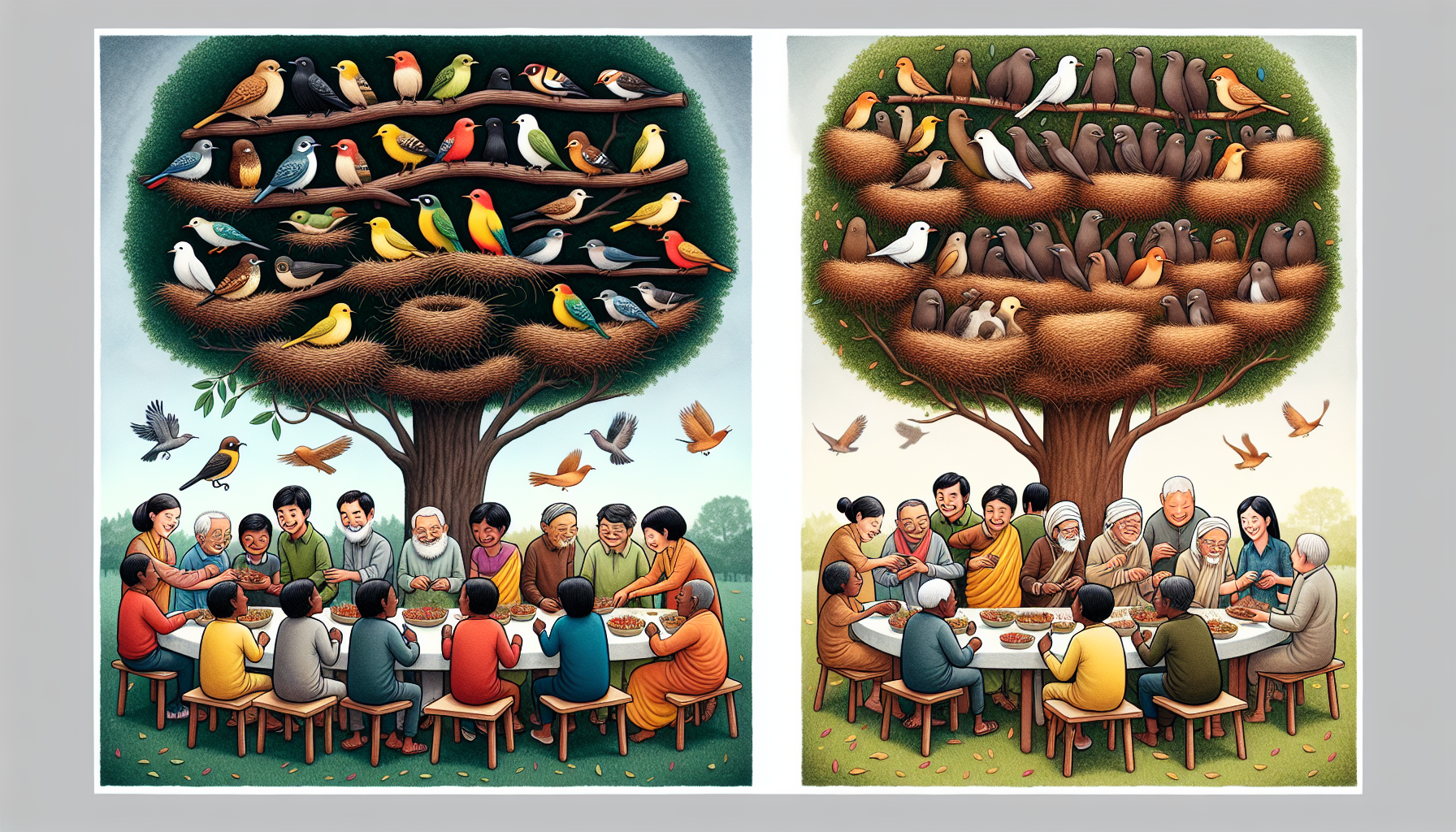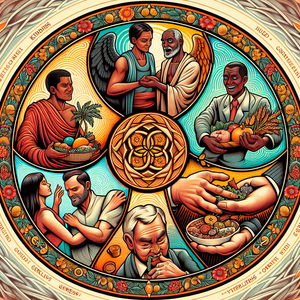The Legacy of Romulus: Alien Influence in Ancient Civilizations

Romulus, alongside his twin brother Remus, is central to the founding myth of Rome, as chronicled by ancient historians such as Livy and Plutarch. The narrative recounts the tale of Romulus' fraternal conflict, culminating in the tragic killing of Remus during a dispute over the city’s foundation. While this story is often interpreted as a reflection of human nature, conflict, and societal formation, a deeper examination may reveal elements that suggest a different interpretation—one hinting at the influence of beings from beyond our planet. In a world where myth and reality often intersect, Romulus embodies traits that seem almost superhuman. His ability to establish a city, rally supporters, and create laws exhibits a level of leadership and wisdom that could be viewed as more than mere human endeavor. If we entertain the notion that Romulus was not merely a historical figure but potentially influenced by higher powers, the narrative takes on new dimensions.
Ancient Texts and Alien Encounters
Throughout history, various ancient texts have documented encounters with celestial beings or gods who descended from the heavens, imparting knowledge and technology to humankind. The Sumerian mythos spoke of the Anunnaki, deities who descended from the sky to shape human civilization. Similarly, Hindu texts such as the Mahabharata describe advanced flying machines called vimanas, used by gods in their celestial journeys. When we draw parallels between these ancient accounts and the myth of Romulus, questions arise: Could Romulus himself have been a recipient of extraterrestrial knowledge? The Roman historian Tacitus chronicled mysterious origins of the gods, often attributing their powers to celestial phenomena. In light of this, Romulus’s legendary prowess and apparent divine favor could be interpreted as indicative of interactions with advanced beings who bestowed upon him wisdom and technology.
Supporting Examples
The ancient texts from different cultures often echo similar themes of divine or alien intervention. For example, in the Epic of Gilgamesh, the hero Gilgamesh encounters beings with knowledge beyond that of mere mortals. This pattern across civilizations invites reflection on whether Romulus’s extraordinary abilities and accomplishments might be similarly inspired by extraterrestrial encounters.
Archaeological Evidence and Cultural Myths
Archaeological findings frequently challenge conventional historical narratives, revealing artifacts and structures that provoke speculation about their origins and purposes. Notable examples include the enigmatic structures of Stonehenge and the Pyramids of Giza, which have sparked debates about their construction techniques and the civilizations that built them. In Rome, while the majority of artifacts reflect human ingenuity, some researchers have pointed to anomalous findings, such as intricately designed tools and objects that seem to exhibit advanced engineering capabilities beyond the era's known technologies. This raises questions about the sources of such knowledge and skills. Moreover, cultural myths across civilizations often feature figures resembling Romulus, suggesting a shared consciousness or collective memory of potential alien influence. These narratives often portray encounters with celestial beings as divine or heroic experiences, hinting at the possibility that ancient peoples might have interpreted extraterrestrial interactions through a lens of reverence and awe, shaping their understanding of leadership and civilization.
Modern Interpretations and the Fascination with the Unknown
In contemporary society, the allure of aliens and their possible impact on human history remains a captivating subject. From popular films and literature to conspiracy theories, the concept that we are not alone in the universe permeates our collective imagination. This fascination invites a reevaluation of historical figures like Romulus, suggesting that they may embody not only human achievements but also serve as symbols of humanity's quest to understand its place in a broader cosmic narrative. Considering Romulus through the lens of potential extraterrestrial influence prompts deeper inquiries about humanity's origins, the evolution of civilizations, and the myths that continue to shape our identities. This perspective encourages us to transcend traditional historical interpretations and embrace a more expansive view of our past, one in which the extraordinary and the unknown coexist with human history.
The legacy of Romulus as the founder of Rome is a complex tapestry woven with history, mythology, and cultural significance. By exploring the intriguing possibility of alien influence, we open avenues for new interpretations of ancient civilizations and their stories. This exploration not only captivates the imagination but also reflects our enduring curiosity about the unknown. As we continue to seek answers about our origins and the universe, the tale of Romulus serves as a poignant reminder that the truth may be more extraordinary than we can comprehend. Through the lens of potential extraterrestrial encounters, we can appreciate the complexities of our historical narratives and the uncharted territories that lie ahead, inviting further exploration into the mystical intersections of history and the cosmos.
Archaeologist Specializing in Ancient Civilizations
Smithsonian Institution, British Museum
Core Responsibilities
Conduct fieldwork to excavate and analyze archaeological sites relevant to ancient cultures, focusing on artifacts that may suggest extraterrestrial influence.
Research and interpret historical texts and artifacts to develop narratives around ancient societies, including their myths and technological advancements.
Required Skills
Proficiency in archaeological methods and techniques, including stratigraphy and artifact analysis.
Strong background in anthropology or history, with a focus on ancient civilizations.
Common Employers
Museums, universities, and cultural heritage organizations such as the Smithsonian Institution or the British Museum.
Astrobiologist
NASA
Core Responsibilities
Study the potential for extraterrestrial life and its implications for understanding human history and development.
Analyze extreme environments on Earth to draw parallels with conditions that might support life elsewhere in the universe.
Required Skills
Background in biology, chemistry, or planetary science, with specific knowledge of astrobiological theories.
Familiarity with scientific research methods and data analysis techniques.
Common Employers
Research institutions, NASA, and universities engaged in space exploration and astrobiology.
Cultural Mythologist
Core Responsibilities
Research and analyze myths across different cultures, focusing on narratives that may suggest interactions with extraterrestrial beings.
Develop academic papers or presentations that explore the impact of these myths on contemporary understanding of history and civilization.
Required Skills
Advanced degree in mythology, anthropology, or cultural studies.
Strong analytical and writing skills with the ability to communicate complex ideas clearly.
Common Employers
Academic institutions, think tanks, and cultural research organizations.
Historiographer
Core Responsibilities
Examine and interpret historical narratives, particularly around key figures like Romulus, to assess the influence of myth and legend on historical accounts.
Engage in interdisciplinary research that connects history, literature, and cultural studies to provide a broader understanding of past civilizations.
Required Skills
Strong background in historiography with a focus on ancient history and mythology.
Excellent critical thinking and research skills, including familiarity with various historical documents and texts.
Common Employers
Universities, historical societies, and publishing companies focused on historical literature.
Museum Curator for Ancient Artifacts
Core Responsibilities
Oversee collections of ancient artifacts, ensuring they are accurately documented, preserved, and displayed, particularly those related to myths of extraterrestrial influence.
Develop educational programs and exhibitions that engage the public in discussions about the origins of civilizations and their connections to mythology.
Required Skills
Degree in archaeology, history, or museum studies, with experience in artifact conservation and curation.
Strong communication skills to effectively present information to diverse audiences.
Common Employers
National and local museums, cultural heritage sites, and educational institutions.


